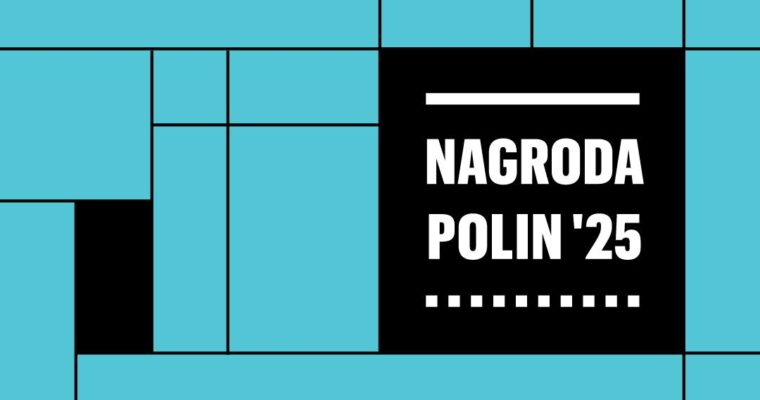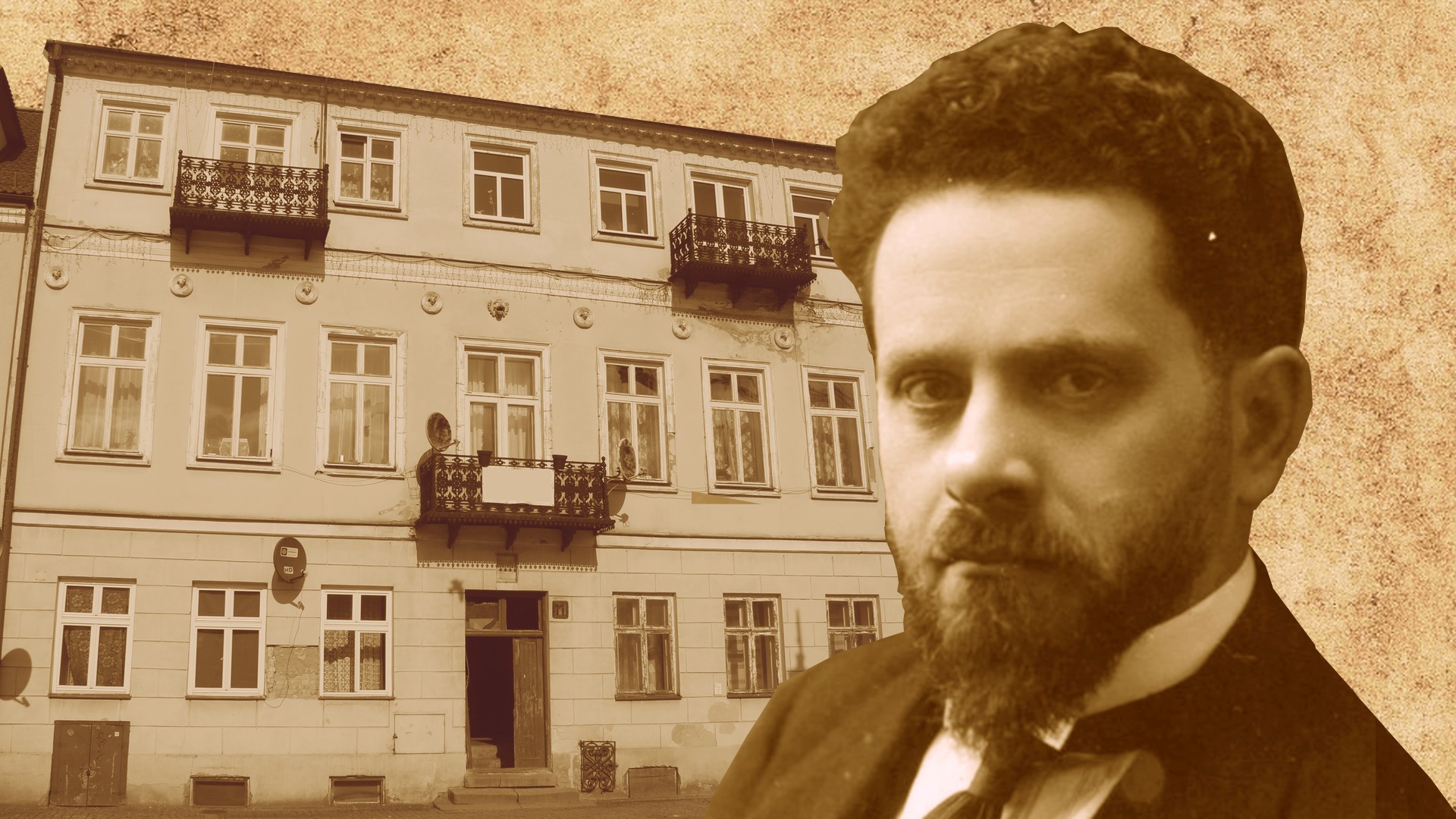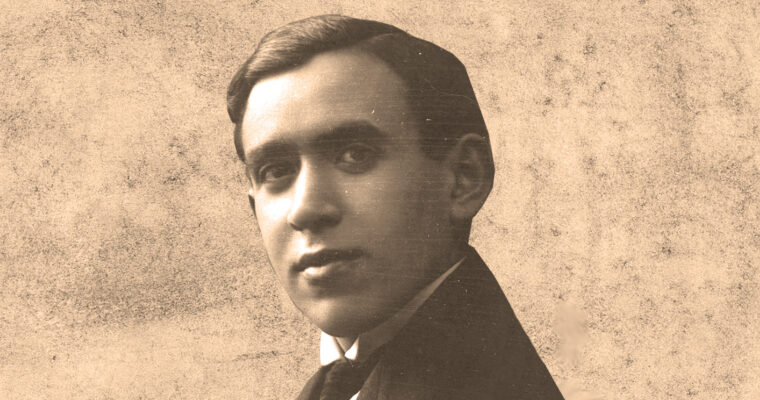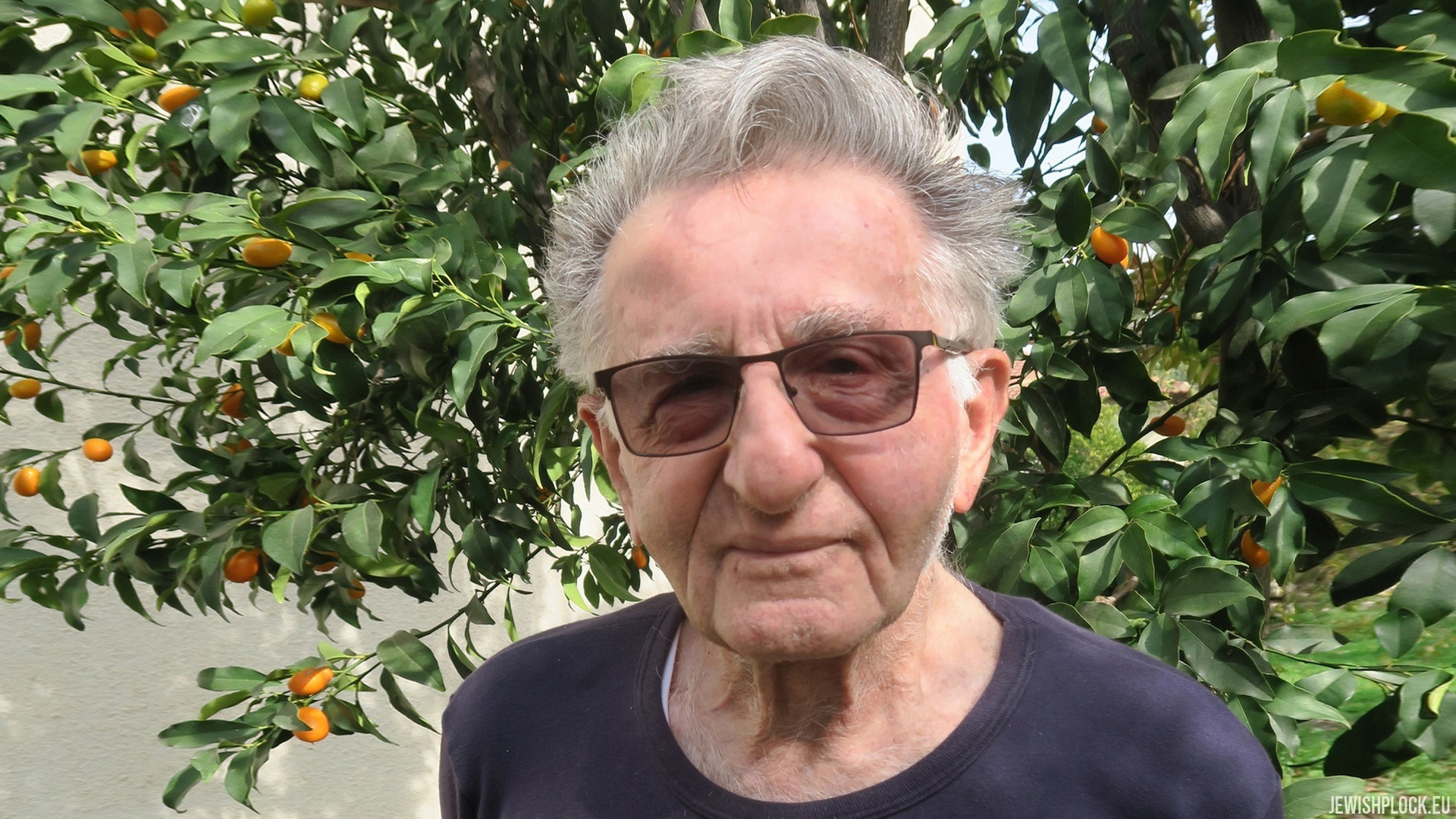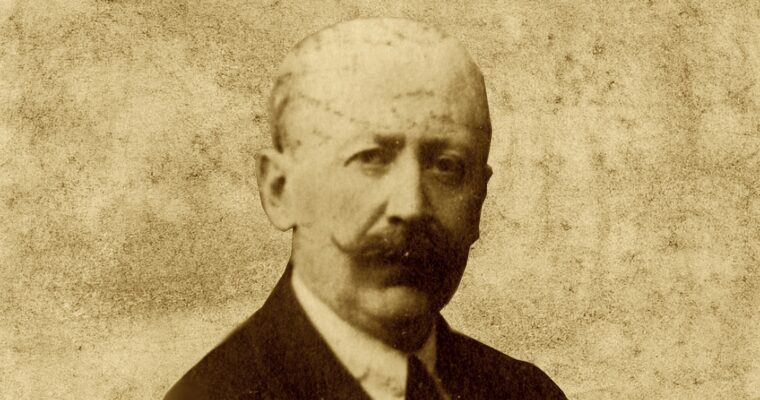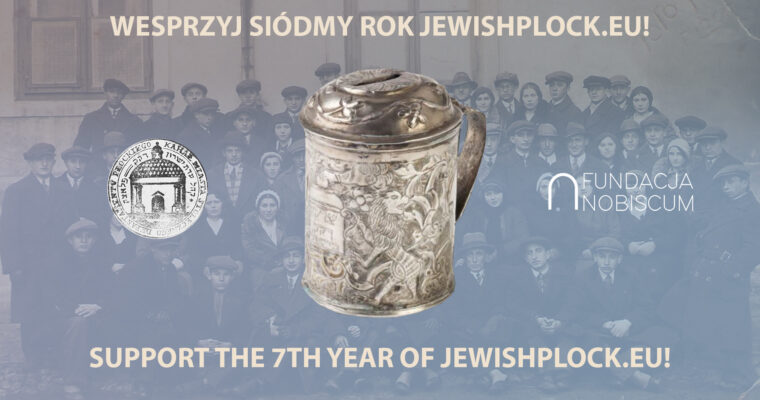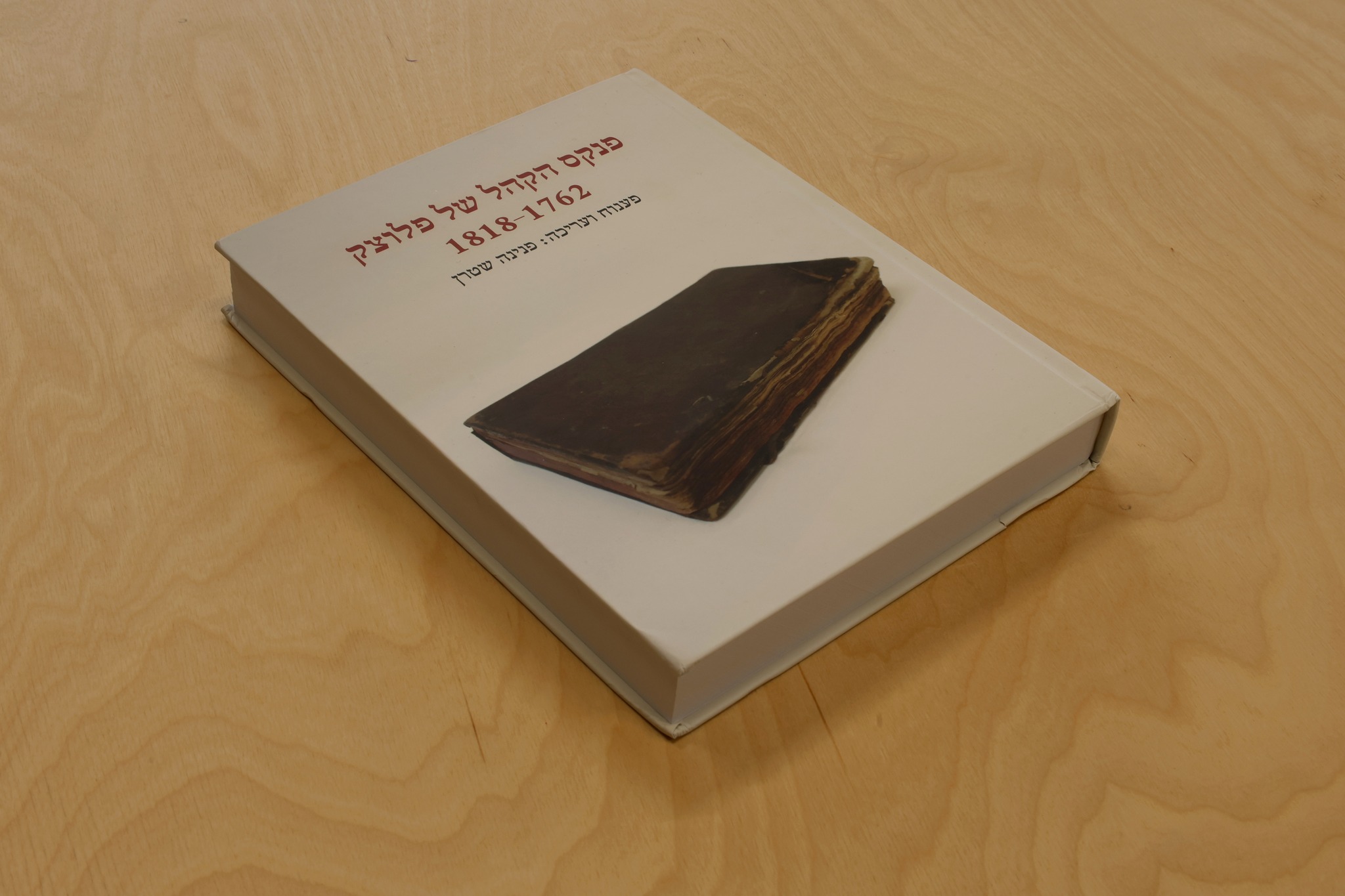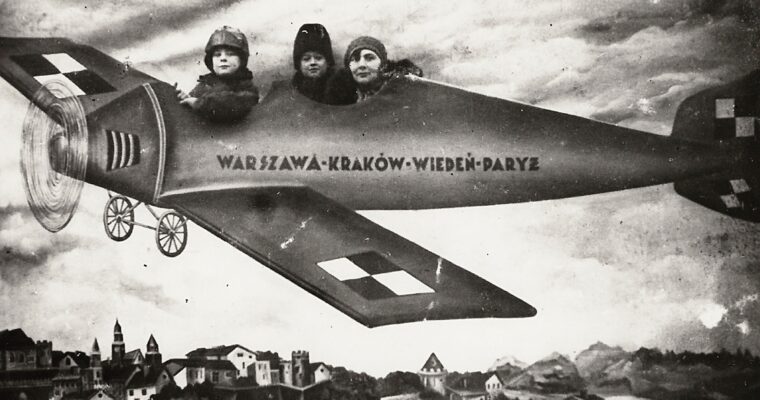Yitzhak Grünbaum (1879-1970), a member of the Legislative Parliament and the Parliament of the First, Second, and Third Term of the Second Polish Republic, and one of the signatories of the Declaration of Independence of Israel, earned his place in Płock’s history as the initiator of the establishment of the first Jewish library in the town, also one of the first Jewish libraries in Poland.
Izaak Towie Altman, a journalist, writer, author of the book “Jeden dzień płockiego kupca” [“One Day of a Merchant from Płock”] and publisher of the newspaper “Dos Płocker Leben,” wrote in his memoirs about Yitzhak Grünbaum’s role in establishing the library:
Some of the group of students, involved in the national movement and studying in the upper grades of a Russian middle school, established the first Jewish library in Płock. Among these students was one who can rightly be considered the driving force behind the entire endeavor. Serious, energetic and dedicated to the cause, he worked for it more than anyone else, dealt with its problems and served as an example to others through his activities, thanks to him more and more came and helped to implement his idea.
The meeting at which the decision was made to establish a Jewish library in Płock took place in the private prayer house of Towie Fiszman, who also expressed his willingness to submit an application to the authorities for permission. At that time, under the tsarist regime, obtaining permission to open a library, especially a Jewish one, was not an easy task – a library could only be legalized as a private enterprise, in the name of someone above any suspicion. The meeting was organized by Aron Beker, one of the later founders of the Jewish Secondary School Association in Płock, and Yitzhak Grünbaum, who in his address to the audience mentioned, among others, the students of the Beth Midrash, “seeking a new way of life, to whom the library and its books should come as aid.” During the meeting, a Zionist association was formed under the name Mazkeret Shmuel (in honor of Rabbi Shmuel Mohilever, the founder and ideologist of religious Zionism).
After Towie Fiszman’s application was approved, work began on opening the library and organizing its collection. Books were donated by private individuals, including Icchak Grünbaum himself, who shared his publications in Hebrew, as well as books from the former collection of the Płock library, which operated under the auspices of the “Kałakotka” Association for Science and Reasonable Thinking. Płock residents remember Grünbaum as someone who would go door-to-door, present his case, approach bookcases, search for items of interest, and ask for donations. Mordechaj Koszerkiewicz, a locksmith and worker at the Sarna factory, was also one of the library’s most active organizers.
The library, which eventually received the name Hazomir, meaning “songbird” in Hebrew, became an important cultural resource for Płock’s youth, who could read and absorb knowledge there, as well as a center for discussions and meetings. There was a reading room at the library – one of the oldest reading rooms in Płock.
For many years, the Hazomir Jewish Library was located in a house at 11 Old Market Square. The Hazomir Jewish Musical, Literary, and Dramatic Association, founded by Mendel Szlossberg, Izaak Towie Altman, and Herman Minc, also operated here.
On November 17, 1926, celebrations took place to mark the 30th anniversary of the Hazomir Library. A ceremony was held at the municipal theater with the participation of Yitzhak Grünbaum, an anniversary book was published, and, in addition to Grünbaum, Izaak Towie Altman, Aron Beker, Mordechaj Koszerkiewicz, and Jakub Józef Bursztyn were appointed honorary members of the library.
As noted in the 1936 issue of the “Bibliotekarz” magazine, the Hazomir library had a collection of 6,215 volumes at that time. Fiction and scholarly works in Polish numbered 3,169, Yiddish fiction 2,066, and Hebrew 980. Its 350 members, mostly young people, used to borrow 50 books daily. The total number of borrowed books during the year was 15,000.
Before the war, the Hazomir library was located at 5 Grodzka Street.
Yitzhak Grünbaum visited Płock again after the end of World War II. He attended a meeting of the Jewish Committee and visited the former Jewish district.

